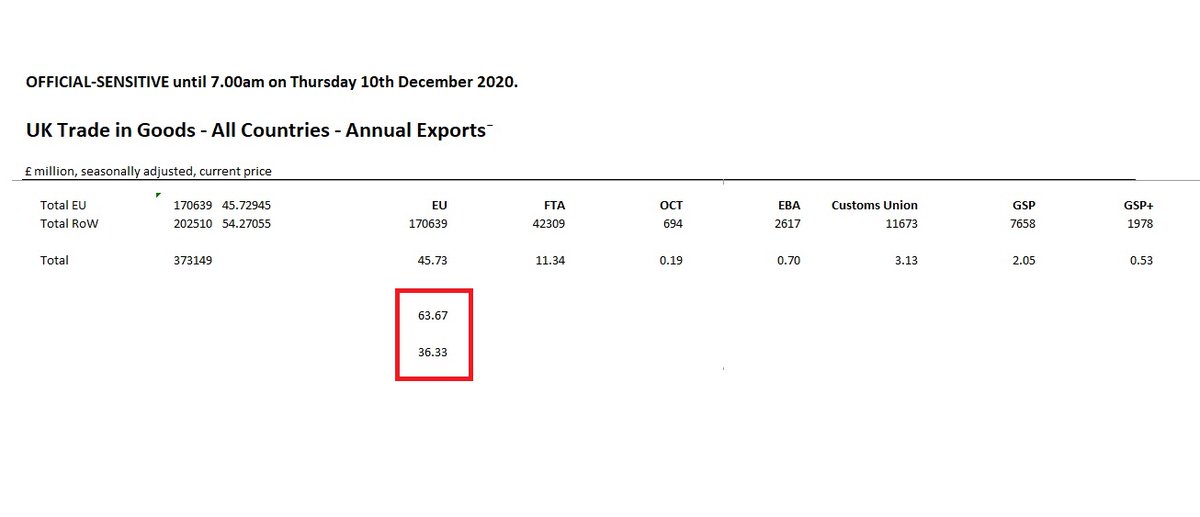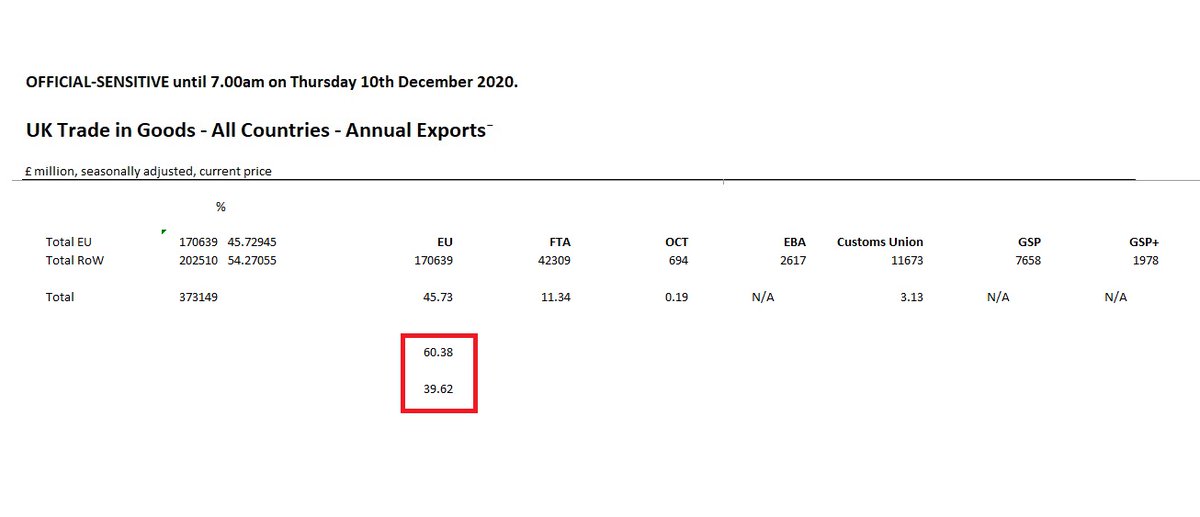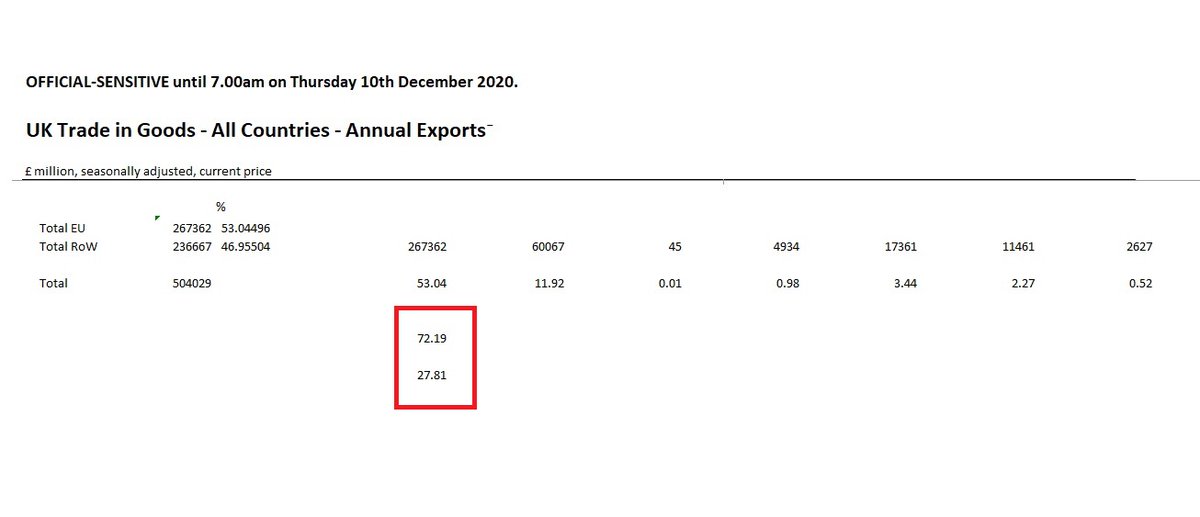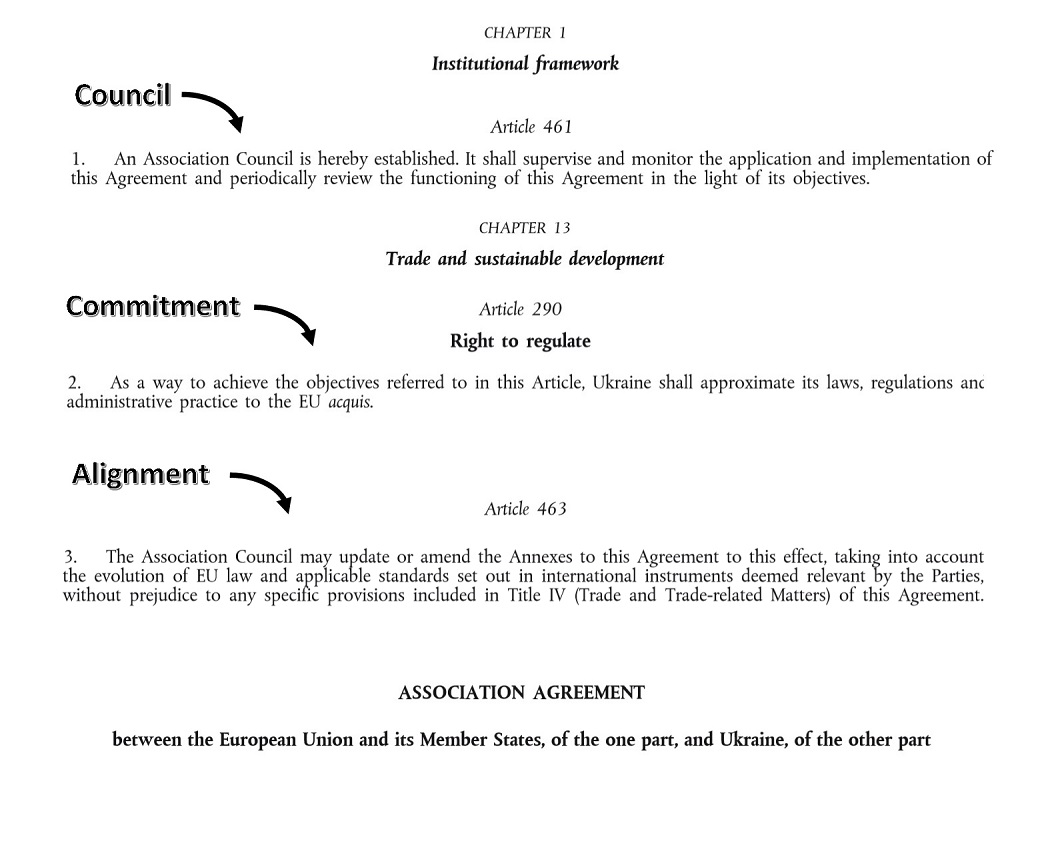
Shall we do this?
https://twitter.com/IainDale/status/1338168779419873282
At the top of this Seasonally adjusted data for Goods it says:
"OFFICIAL-SENSITIVE until 7.00am on Thursday 10th December 2020."
I'm guessing it's pretty new.
ons.gov.uk/economy/nation…
"OFFICIAL-SENSITIVE until 7.00am on Thursday 10th December 2020."
I'm guessing it's pretty new.
ons.gov.uk/economy/nation…
If we take exports, and a very simplistic view. We're looking at ~64% of our exports go to countries we don't trade with on WTO rules and ~40% of exports go to countries we do. 

The lesson here that even the most basic application of detail and study our insight gets drastically better.
The next question is what do we import/export to the US very well vs what do we import/export to the EU very well.
For example, historically when the automotive business was being produced it wasn't practical to ship cars to the US. So car companies in the US never lobbied for the protection.
The EU, however, has a number of developed countries in close proximity, car tariffs are going to be high.
If Nissan in Sunderland are exporting well to the US on WTO terms it does not mean they will trade fine to the EU on WTO terms.
Trade evolves around history, culture, barriers, resources, technology and geography.
And it really takes a special kind of economics to go on and on about free trade being optimum without appreciating that geography and supply chains are all types of comparative advantage.
If the UK were really embracing free trade they would be respecting comparative advantages instead of ignoring them.
And if they really wanted an intelligent trade policy they wouldn't be assuming all trade barriers are the same.
/End
/End
• • •
Missing some Tweet in this thread? You can try to
force a refresh








